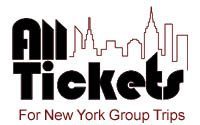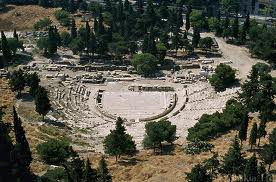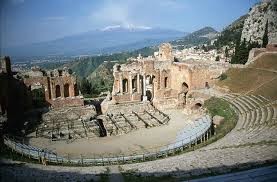
We use a lot of terminology in the theatre, which may be called “theatre speak.” Some of it is very specific to the industry. Terms such as “strike,” “tech,” and “blocking” are associated with specific activities/duties/jobs in the theatre. These are words that are used specifically in the industry. But what about more generalized terms such as those that many of us who are not in the theatre use? Specifically, today we’re talking about the word “theatre.”
Dionysius Baby
We trace the origins of the first formal theatre back to ancient Athens. Sometime around the 6th or 5th century BCE, plays were being presented in Athens. Dionysius was the God of Theatre, Wine and Revelry. We also trace the origins of the word we use for the art form in which actors offer live performances in front of an audience and to the building in which those performances occur to this time.
The word theatre comes from the Greek word “thea.” Thea means to see or view. Of course, unlike a narrative that is told, theatrical performances include things that an audience could and would want to see- actors, their actions and reactions, spectacle, etc. So theatre was something that you viewed.
Theatron
The Greeks in Athens called the place in which the audience sat and watched a play the “theatron.” That would be the “viewing place.” The Greek theatron was semicircular and configured around a circular playing area called the orchestra (dancing circle). Upstage of the orchestra, there was a “skene.” Skene means “hut.” The skene was first a tent in which the actors changed costumes but eventually it because a raised platform which held changing rooms for the actors and on which actors could stand and play out scenes. This structure also had doors through which actors could enter. The skene was about 14-feet higher than the orchestra.
By the way our word “proscenium,” which we use today, comes from the Greek “skene” and “proskene”.” In the Greek theatre the proskene was in front of the skene. It helped to frame and define the skene, adding some additional acting areas. The proscenium in our theatre buildings is the frame that surrounds the stage, helping to define the difference between the acting space and audience space.
The Theatre
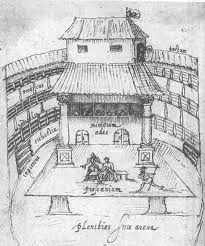
Interestingly enough the name of the first permanent theatre building used exclusively for live performances of plays in London was The Theatre. The Theatre was owned by the Burbages who eventually took the building down and shipped the boards out of the walled City of London across the Thames to Bankside where they built The Globe, which was the theatre company of which William Shakespeare became a member.
NOT in New England
n London during Shakespeare’s time there was a group that was very critical of the theatre. In fact, they focused a lot of their energy on closing down the theatres and during the Reformation did so. That group was the Puritans. The Puritans were persecuted in England and a group sailed to the New World. They first settled in what would become Provincetown, MA. But they left fairly quickly and created a permanent settlement in Plymouth, MA. One of the reasons people point to the slow development of theatre in America is the Puritan influence. In Massachusetts and much of New England into the early 20th century it was hard to find a “theatre.” You might find a museum, opera house or lyceum where plays were presented, but the word “theatre” was anathema.
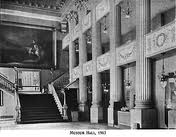
Going to the Theatre
So when you are going to the theatre you are going to a place where you can “see” or “view” a play. We, the audience, sit in what is called the “auditorium.” Ironically, the root word for “audience” and “auditorium” means “to hear.” I guess it makes sense since we do go to the theatre to see and hear the live performance of a play or musical. That’s it for now. More theatre speak to come.
